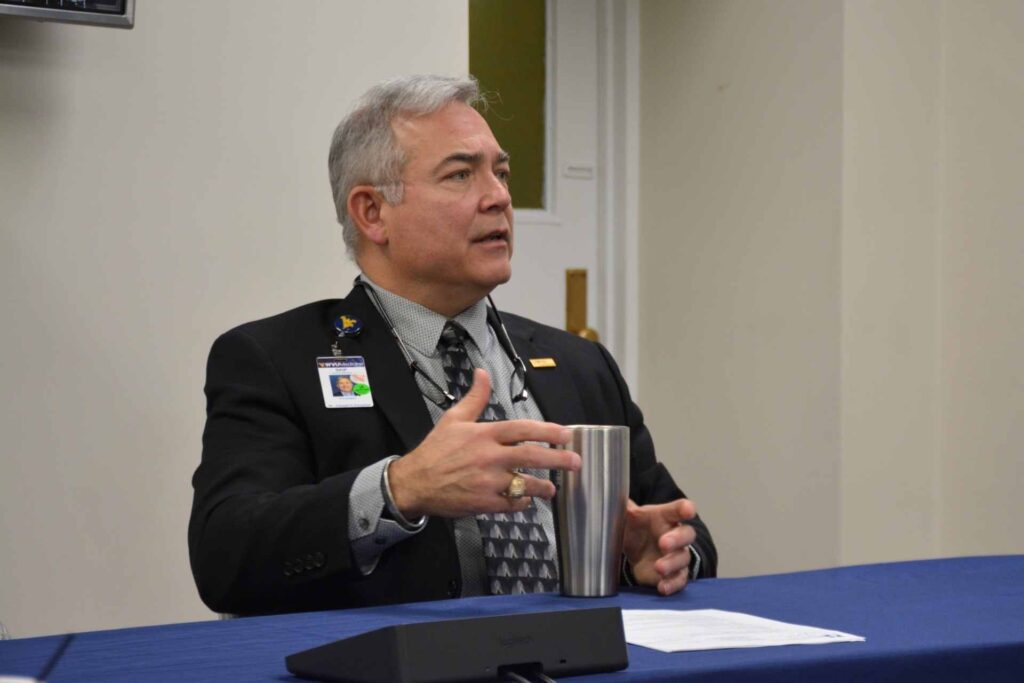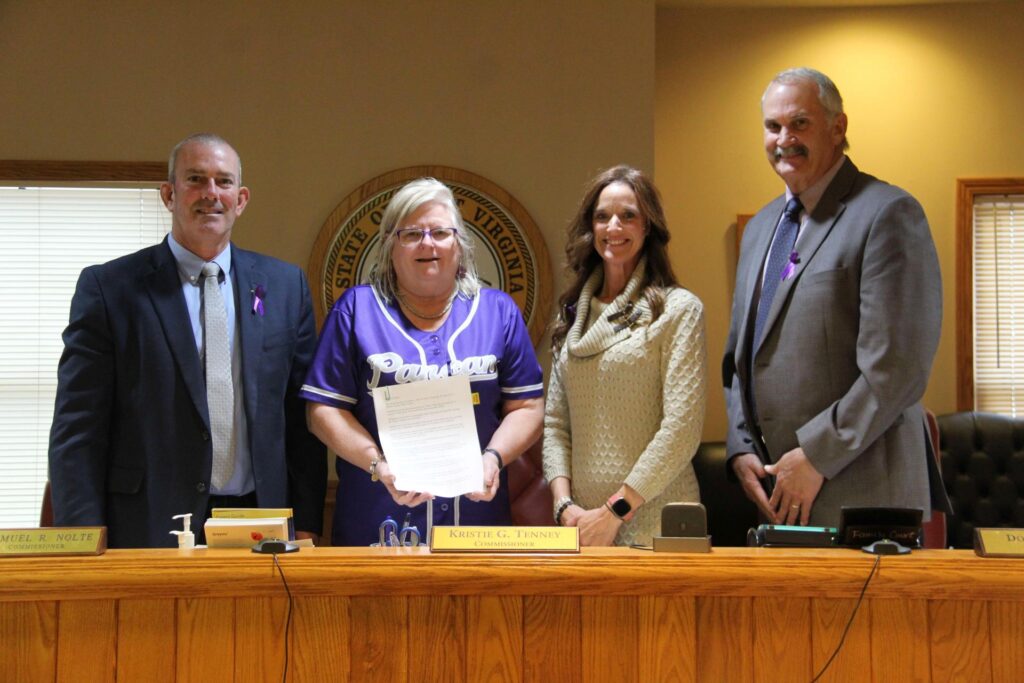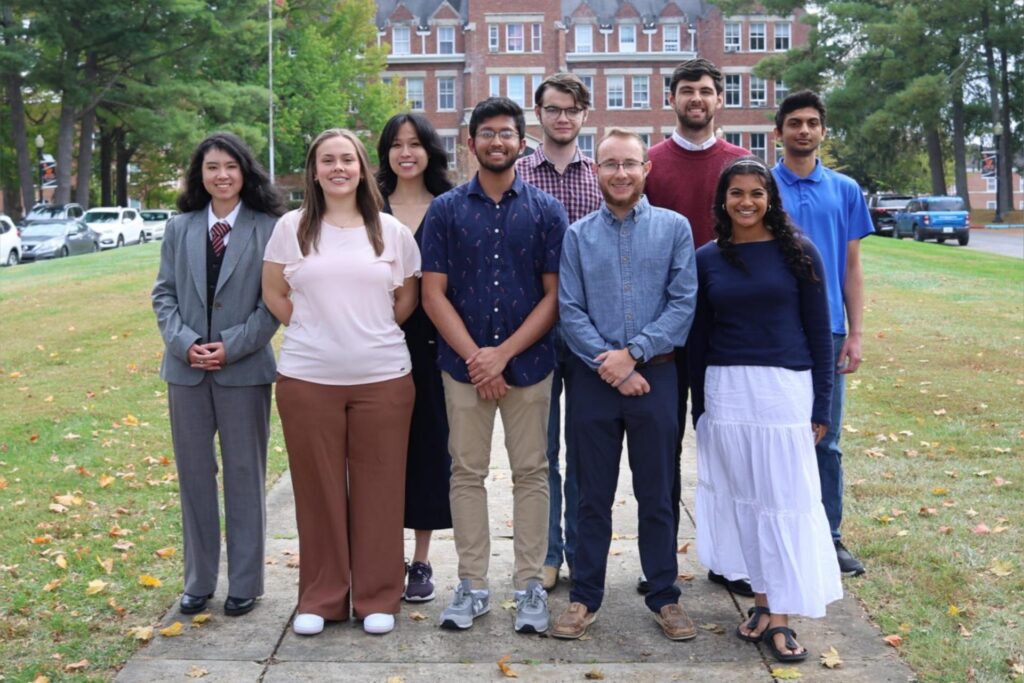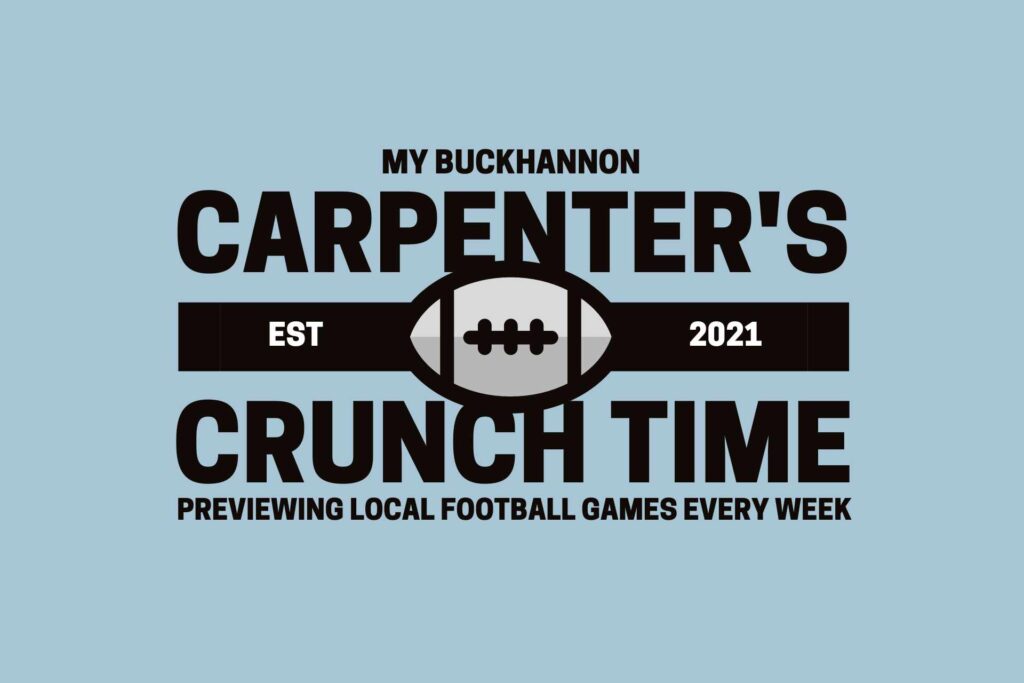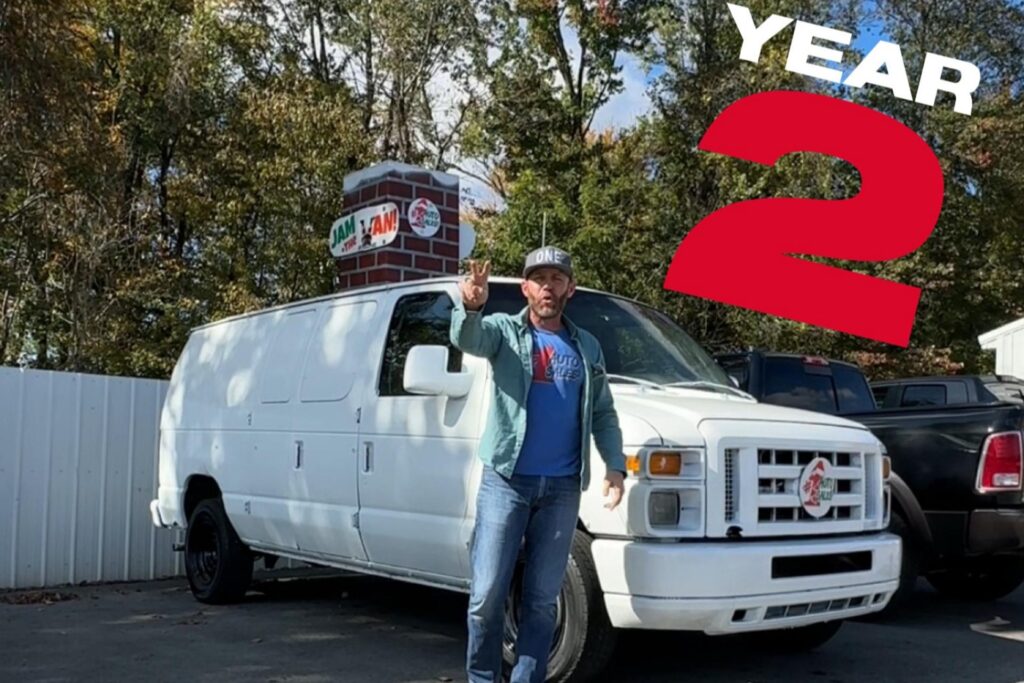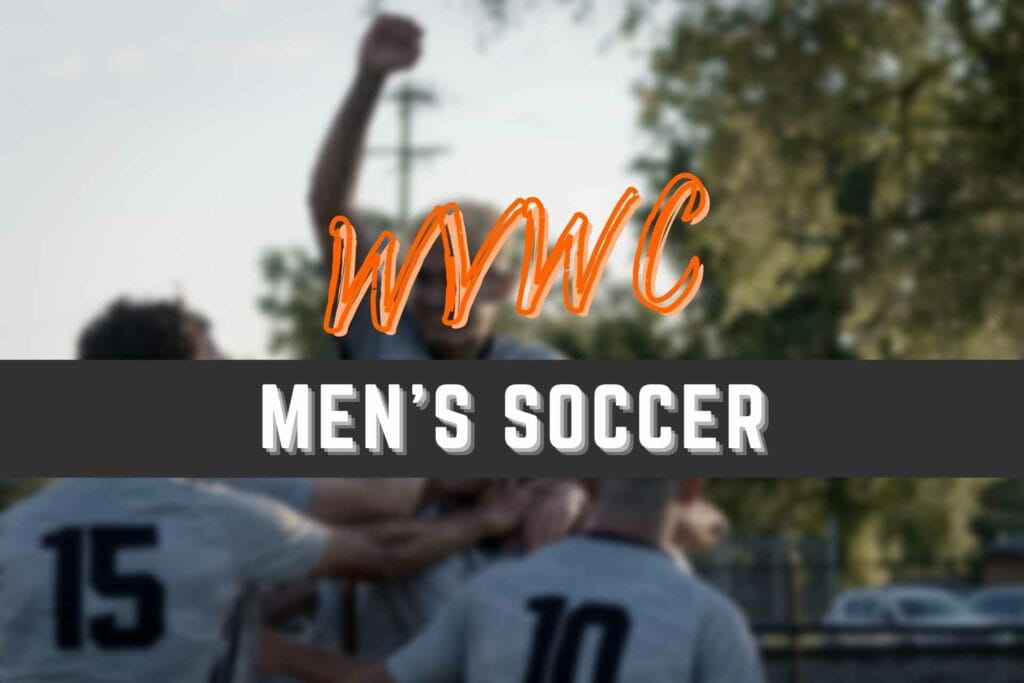BUCKHANNON – Can you imagine an Upshur County in which St. Joseph’s Hospital didn’t exist and residents with acute emergencies were forced to drive to Weston – or even Bridgeport – for prompt and, in some cases, life-saving, medical care?
That’s the question St. Joseph’s Hospital president and CEO Skip Gjolberg wants Buckhannon-Upshur community members to reflect upon.
Following the worst of the COVID-19 pandemic, hospital administrators are working to re-establish their grassroots team that works to advocate on behalf of rural hospitals to ensure their long-term viability in West Virginia. At two recent public meetings, Gjolberg outlined why having a homegrown team of local people who understand their communities and the rural hospitals that serve them is crucial.
What is grassroots advocacy?
Gjolberg said grassroots advocacy is political activity on the federal and state levels with the goal of creating change.
“It is the power of the people to take collective action on their own behalf,” Gjolberg said at the first of two sessions March 20 to recruit residents interested in advocating for or against policies and legislation that impact rural hospitals, typically in conjunction with the West Virginia Hospital Association. WVHA is a statewide nonprofit organization that represents hospitals and health systems across the continuum of care, according to its website.
Gjolberg said grassroots advocacy works because legislators know they’re accountable to their constituents.
“If they start hearing from us, especially in large numbers, and they want to continue to be re-elected, they start to make sure that they listen because they know, ‘If I don’t, there’s going to be a bunch of people who may not vote for me in the next election year,’” he said. “Then, they also need our firsthand knowledge and expertise because they don’t work in the health care field.”
Why it matters: The fragility of rural hospitals
Gjolberg said the need for outreach is especially crucial now, given the vulnerability of rural hospitals like St. Joseph’s.
“Between 2010 and 2021, there were 136 rural hospitals that closed, so those are communities that no longer have that large economic driver in their community, and they don’t have that large emergency resource,” Gjolberg said. “There were a record 19 closures in 2020.”
Hospital closings in the rural U.S. have some more and less obvious detrimental consequences. For soon-to-be new moms and people with certain conditions like cardiac events and seizure disorders, time matters.
“It’s going to increase drive time for moms, for people who are having some kind of emergency,” Gjolberg said. “They would still probably have doctors’ offices and Federally Qualified Health Centers like Community Care, but you won’t have access to that emergency care you need in desperate situations. If we didn’t have St. Joe’s here, you’re going to have to go to Weston, which from here to that hospital, it would probably could take you a good 30 minutes to get through town, and it’s going to take you even longer going to Davis Medical Center or UHC.”
Gjolberg said St. Joseph’s Hospital’s recent statistics show how often residents utilize close-by emergency care.
“We’ve gotten busier,” he said. “We average now about 68 ER (Emergency Room) visits a day, which is over 2,000 a month, or approximately 20,000 to 24,000 a year. We average 16 surgeries a day. We perform over 300 deliveries of babies – maybe upwards of 320 or 330 even – so we’re a busy rural Critical Access Hospital.”
Rural hospitals’ impact on small-town economies
Hospitals remaining economically viable is also critical for rural communities since they are typically among the largest employers. In Upshur County, St. Joseph’s Hospital employs more people than any other enterprise.
“Over 500 people have jobs here at St. Joe’s, and we generate about almost $40 million in salaries and benefits, so that’s a lot of money that St. Joe’s puts out to the community,” Gjolberg said.
The quality of health care is also a major factor businesses evaluate when deciding whether to establish themselves in an area.
“It’s health care, it’s typically schools, and then access to a labor market,” Gjolberg said. “Those are the three drivers for economic development. I think it would be hard for people like Robbie Skinner at the UCDA to bring in new businesses here if we didn’t have the health care that we do.”
Grassroots advocacy committees assist in educating legislators on the intricacies of rural health care
Gjolberg said because most legislators don’t work in the health care field, they’re not always familiar with the impact and/or unintended consequences certain laws could have on rural hospitals. Grassroots advocacy committees are tasked with educating them.
“We experienced some issues this year where legislators were trying to put some mandates in place regarding staffing and we knew, ‘Well, that’s not really going to work in a rural community,’” Gjolberg said. “There were some legislators who were trying to stop mandating [school-age] immunizations. We, in health care, feel like that is very dangerous when you start allowing kids to opt out of polio vaccines, meningitis and other types of vaccines.”
“I’m all for individual freedoms,” he continued, “but when it comes to situations like this, where you can impact large numbers of kids when they are all together in a school — even if you’re immunized, you could still catch those diseases, and teachers could catch those diseases — it can get out hand. We’ve seen states around us that have relaxed their immunization standards, and they’ve had outbreaks, and it’s not good for those kids.”
How to join
St. Joseph’s Hospital is looking to mobilize people who want to become educated on healthcare-related policy issues so they can write letters, make phone calls, send emails and even set up in-person meetings with legislators.
“Part of the committee’s goal will be to teach people who are going to be part of the grassroots advocacy committee about having face-to-face meetings,” Gjolberg said. “That may seem old-fashioned, but I think in-person interaction is one of the most effective steps you can take.”
Interested in becoming part of the revived grassroots advocacy committee? Send an email with your name and contact information to stjadvocacy@wvumedicine.org.
